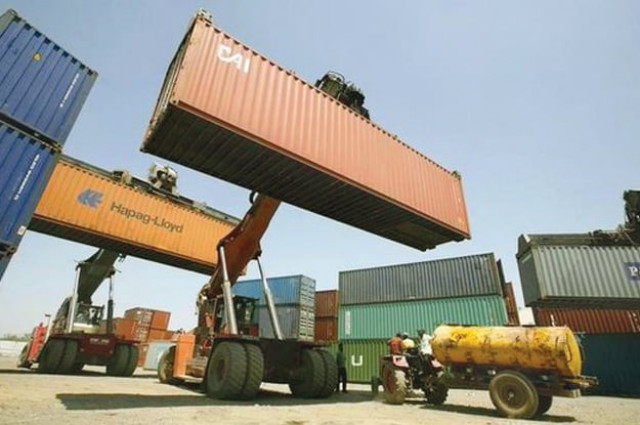UK assures Pakistan of support in GSP Plus status review
It comes after Islamabad pledges to improve human and labour rights, protect environment

Pakistan was an exciting market for British businesses. Both governments were ambitious to see more British trade and investment in Pakistan as well as Pakistani businesses exporting to and operating in the UK. PHOTO: FILE
UK Minister of State for Trade Policy Greg Hands met Commerce Minister Pervaiz Malik and discussed bilateral trade relations as well as upcoming third review of the GSP Plus scheme that the bloc of 28 nations offered in January 2014.
"The UK will continue to support Pakistan to benefit from the EU's GSP+ scheme, whilst in return Pakistan pledges to continue to make progress to improve human rights, labour rights, environment and good governance in line with the commitments made as part of the GSP+ scheme," said a joint statement issued after the meeting.
The Generalised Scheme of Preferences (GSP) Plus is an instrument of EU trade policy which is aimed at encouraging beneficiary countries to comply with core international standards in the areas of human rights, labour rights, environmental protection and good governance.
Post-Brexit: Pakistan aims for new concessionary deal with UK
Pakistan's exports to the UK and EU increased over 35% in the past three years, said Commerce Secretary Younus Dagha.
Although the UK has opted to leave the European Union and is currently negotiating Brexit terms with the EU, it will have voting rights till 2019.
Currently, the UK supports Pakistan through the EU's GSP Plus trade preference scheme and this arrangement encourages economic growth and sustainable development in Pakistan, according to the statement.
It added the GSP Plus arrangement also helped businesses and consumers in Britain.
"As the UK leaves the EU, we recognise the need to ensure a smooth transition in our trading arrangements," the UK minister said.
He reiterated his country's commitment to a similar treatment after quitting the EU that Pakistan was currently enjoying under the GSP Plus scheme.
The statement emphasised that the UK's firm intention was to maintain these preferences on a bilateral basis, with generous access to UK markets.
More than 85% of Pakistan's exports to EU member countries qualify for the GSP Plus benefits. However, the continuation of these benefits depends on the review that the EU plans to conduct in January next year.
EU asks Pakistan to take full benefit of GSP Plus
The European Commission will present a report on implementation of the 27 conventions to the European Parliament.
"The 27 conventions are very important, but these are very unrealistic in Pakistan's context, as it is an overly populated country facing issues like child labour," said Yasmeen Rehman, former strategic adviser to EU's democracy strengthening project in Pakistan.
Rehman, who is also a former member of the National Assembly, said because of these issues there were still gaps in implementation of the 27 conventions.
For instance, the moratorium on death penalty was not directly part of the 27 conventions, but it was linked with the conventions on human rights and democracy.
The joint communiqué stated that the UK would help Pakistan break down barriers to trade and use the resultant opportunities to create jobs and reduce poverty.
It added that Pakistan was an exciting market for British businesses. Both governments were ambitious to see more British trade and investment in Pakistan as well as Pakistani businesses exporting to and operating in the UK.
‘Pakistan values relations with EU’
Last review report
The EU Commission's report for second review of the GSP Plus status noted mixed progress on the 27 conventions. The last review was held in January 2016.
The report underlined that after the 18th Amendment to the Constitution, provinces received greater powers in key areas for the GSP Plus, but they lacked capacity, including when it came to collecting relevant data and statistics, which remained a cause for concern.
Furthermore, serious concerns exist related to the right to fair trial. The report stated that there were widespread allegations of the use of torture to extract evidence in violation of obligations under a UN convention.
It noted that the Protection of Pakistan Act adopted in 2014 was a matter of concern in relation to disappearances since it allowed security forces to detain suspects without trial for prolonged periods of time and to keep them in secret detention facilities without informing their families or providing access to legal representation.
"While the authorities have launched a number of constructive initiatives, human rights violations remain widespread in the country …".




1733130350-0/Untitled-design-(76)1733130350-0-208x130.webp)













COMMENTS
Comments are moderated and generally will be posted if they are on-topic and not abusive.
For more information, please see our Comments FAQ